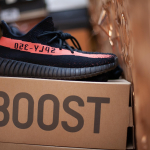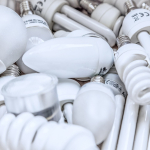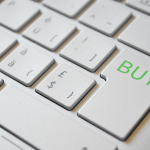In today’s fast-paced world, effectively managing your finances has never been more essential. Personal finance apps have emerged as invaluable tools, assisting users in budgeting, tracking expenses, and achieving their financial goals. With countless options available, selecting the right app can be overwhelming. This guide will explore the best personal finance apps, highlighting their key features and providing comparative reviews to streamline your decision-making process. Whether you aim to save more or simply gain better control of your spending, these tools can empower you to take charge of your financial future.
Overview of Top Personal Finance Apps

Managing finances has never been easier, thanks to the plethora of personal finance apps available today. Here’s a brief overview of some of the top contenders in the budgeting tools market:
- Mint: A user-friendly app that offers comprehensive budgeting features, expense tracking, and credit score monitoring. It connects to your bank accounts and automatically categorizes transactions.
- YNAB (You Need A Budget): Focused on proactive budgeting, this app encourages users to plan every dollar. It provides educational resources and emphasizes the importance of assigning a job to each dollar earned.
- PocketGuard: Ideal for those who want simplicity, PocketGuard shows how much disposable income you have after bills, goals, and necessities. It helps you track spending without getting overwhelmed.
- Personal Capital: Unlike standard budgeting tools, this app also focuses on investments. It offers robust tools for tracking assets, liabilities, and retirement planning.
Each app has its unique strengths, catering to varying financial management styles. Therefore, select the one that aligns best with your financial goals and habits.
Key Features to Look For in Budgeting Tools

When selecting a personal finance app, it’s essential to consider the features that suit your financial needs. A well-rounded budgeting tool should include the following elements:
- User-Friendly Interface: An intuitive design helps users navigate easily and understand their financial situation at a glance.
- Expense Tracking: The ability to categorize and monitor spending enhances awareness of where money goes. Look for apps that automatically sync with your bank accounts for real-time updates.
- Budget Creation Tools: A good app should allow users to set and adjust budgets quickly, letting you allocate funds for various categories such as groceries, bills, and entertainment.
- Reporting and Analytics: Robust reporting features help visualize your financial performance over time, ideally with pie charts or graphs to present income versus expenses.
- Goal Setting and Alerts: Apps that allow you to set financial goals and send alerts when you’re nearing your budget limits can help keep spending in check.
- Security: Ensure the app uses bank-level encryption and secure login options to protect your sensitive financial data.
By prioritizing these features, you can select a personal finance app that aligns with your budgeting and financial goals.
Comparative Review of Popular Money Management Apps

When selecting a personal finance app, it’s essential to compare features, usability, and price. Here’s a brief overview of some top contenders:
| App Name | Key Features | Pricing | Best For |
|---|---|---|---|
| Mint | Budgeting, expense tracking | Free (ads) | Beginners & users seeking simplicity |
| YNAB | Goal-oriented budgeting | $11.99/month | Users wanting proactive goal management |
| PocketGuard | Bill tracking, spend limit | Free/Premium $3.99/month | Users needing expense tracking |
| Personal Capital | Investment tracking, net worth analysis | Free (ads) | Users focused on investment growth |
Key Considerations:
- User Interface: Choose an app with an intuitive design for a smoother experience.
- Integration: Look for apps that connect seamlessly with your bank accounts for automatic updates.
- Security Features: Ensure the app provides strong encryption and data protection measures.
By considering these factors, you’ll find an app that fits your unique financial needs and supports your budgeting journey effectively.
Tips for Choosing the Right App for Your Financial Goals
Selecting the right personal finance app is crucial for effective money management. Here are some tips to guide your decision:
- Identify Your Needs: Determine what aspects of your finances you need help with—budgeting, tracking expenses, or savings.
- User Experience: Choose an app with an intuitive interface. A user-friendly design enhances the experience and ensures you use it regularly.
- Integration: Look for apps that connect seamlessly with your bank accounts and investment platforms. This feature saves time and provides comprehensive insights.
- Customization: Opt for apps that allow personalized budgeting categories tailored to your spending patterns.
- Cost: Compare free vs. premium features. Ensure you understand what you’re getting with paid subscriptions.
- Security: Prioritize apps with robust security measures, such as encryption and two-factor authentication, to protect your sensitive financial information.
By evaluating these factors, you can select a personal finance app that aligns with your financial goals and enhances your money management strategy.
Frequently Asked Questions
What are the most popular personal finance apps available?
Some of the most popular personal finance apps include Mint, YNAB (You Need a Budget), Personal Capital, and PocketGuard. These apps are well-known for their unique features such as budgeting tools, investment tracking, and expense categorization, which help users manage their finances effectively. They are designed to cater to various financial needs, allowing users to choose one that best suits their lifestyle and financial goals.
How do personal finance apps help with budgeting?
Personal finance apps assist users in budgeting by providing tools to track income and expenses, set financial goals, and create budgets based on spending habits. They often categorize transactions automatically, allowing users to visualize where their money is going. Additionally, many applications provide insights and alerts to help users stay within their budget, making it easier to manage money and save for future expenses.
Are personal finance apps secure for managing my financial information?
Yes, most reputable personal finance apps employ strong security measures such as encryption, multi-factor authentication, and secure servers to protect users’ financial data. However, it is always vital for users to choose well-reviewed apps and remain vigilant by regularly updating their passwords and monitoring their accounts for any unauthorized transactions for additional safety while managing sensitive financial information.
Can personal finance apps sync with my bank account?
Many personal finance apps allow users to securely sync with their bank accounts, credit cards, and other financial institutions. This feature enables automatic transaction imports and real-time updates, making it easier to track spending and stay within budgets. Users can often customize which accounts to sync and have control over the data shared, helping to maintain accurate and efficient financial oversight.














Comments are closed.